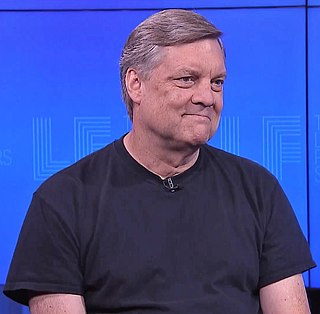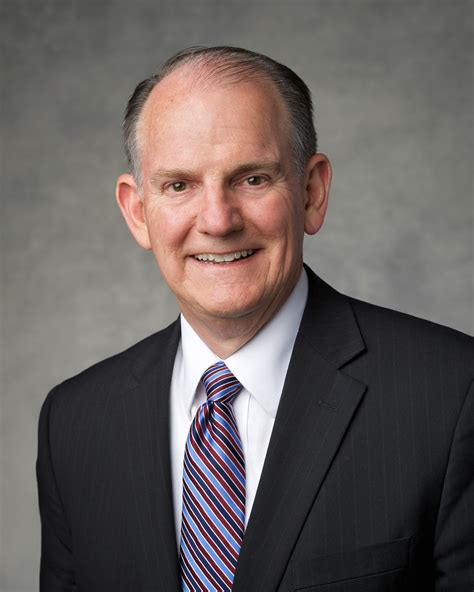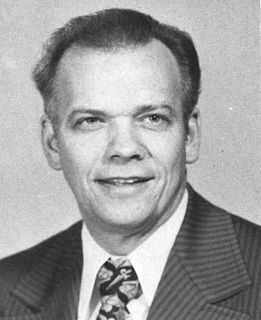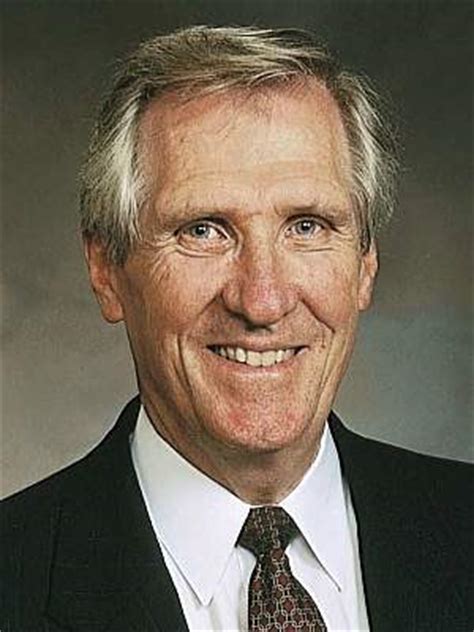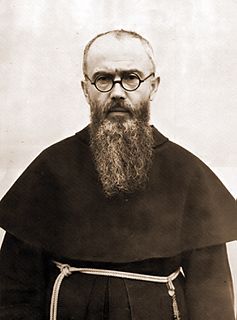A Quote by James E. Faust
Noble fatherhood gives us a glimpse of the divine attributes of our Father in Heaven.
Quote Topics
Related Quotes
Defining and celebrating the New Father are by far the most popular ideas in our contemporary discourse on fatherhood. Father as close and nurturing, not distant and authoritarian. Fatherhood as more than bread winning. Fatherhood as new-and-improved masculinity. Fathers unafraid of feelings. Fathers without sexism. Fatherhood as fifty-fifty parenthood, undistorted by arbitrary gender divisions or stifling social roles.
Developing Christlike attributes in our lives is not an easy task, especially when we move away from generalities and abstractions and begin to deal with real life. The test comes in practicing what we proclaim. The reality check comes when Christlike attributes need to become visible in our lives—as husband or wife, as father or mother, as son or daughter, in our friendships, in our employment, in our business, and in our recreation. We can recognize our growth, as can those around us, as we gradually increase our capacity to 'act in all holiness before [Him]' (D&C 43:9).
Though this world has a way of diminishing and demeaning men and women, the reality is we are all of royal, divine lineage. In that unprecedented appearance of the Father and the Son in the Sacred Grove, the very first word spoken by the Father of us all was the personal name of Joseph. Such is our Father's personal relationship with each of us. He knows our names and yearns for us to become worthy to return to live with Him.
Our Heavenly Father, who loves us completely and perfectly, permits us to have experiences that will allow us to develop the traits and attributes we need to become more and more Christlike. . . . As we understand this doctrine, we gain greater assurance of our Father's love. We will each face times of difficulty, and the question is not when we will face them but how we will face them.
I have a sense that God is unfair and preferentially punishes his weak, his dumb, his fat, his lazy. I believe he takes more pleasure in his perfect creatures, and cheers them on like a brainless dad as they run roughshod over the rest of us. He gives us a need for love, and no way to get any. He gives us a desire to be liked, and personal attributes that make us utterly unlikable. Having placed his flawed and needy children in a world of exacting specifications, he deducts the difference between what we have and what we need from our hearts and our self-esteem and our mental health.
Niepokalanow is a home like Nazareth. The Father is God the Father, the mother and mistress of the home is the Immaculata, the firstborn son and our brother is Jesus in the most Holy Sacrament of the altar. All the younger brothers try to imitate the elder Brother in love and honor towards God and the Immaculata, our common parents, and from the Immaculata they try to love the divine elder Brother, the ideal of sanctity who deigned to come down from heaven to be incarnated in her and to live with us in the tabernacle.
In so far as divine love beautifies our souls. And makes us pleasing to His divine Majesty, it is called grace; in so far as it gives us strength to do good, it is called charity; but when it reaches such a degree of perfection, that it makes us not only do the good, but do so carefully, frequently and readily, then it is called devotion.
My plea therefore is this: Let us get our instruments tightly strung and our melodies sweetly sung. Let us not die with our music still in us. Let us rather use this precious mortal probation to move confidently and gloriously upward toward the eternal life which God our Father gives to those who keep his commandments.
Divine love makes us true to ourselves and to others...
Divine love is the solution to our difficulties and problems.
It frees us from every kind of binding.
It makes us speak truly, think truly, and act truly.
It makes us feel one with the whole universe.
Divine love purifies our hearts and glorifies our being.
On Father's Day, we pay tribute to all in our society who have taken on the responsibilities and joys of fatherhood. Whether our fathers are near at hand or a continent away, with their families or watching from the light of eternity, we take this day to remember them, to say our thanks for the years they have given us, and to ask that they receive God's blessings.
To be cheerful when others are in despair, to keep the faith when others falter, to be true even when we feel forsaken—all of these are deeply desired outcomes during the deliberate, divine tutorials which God gives to us—because He loves us. These learning experiences must not be misread as divine indifference. Instead, such tutorials are a part of the divine unfolding.

